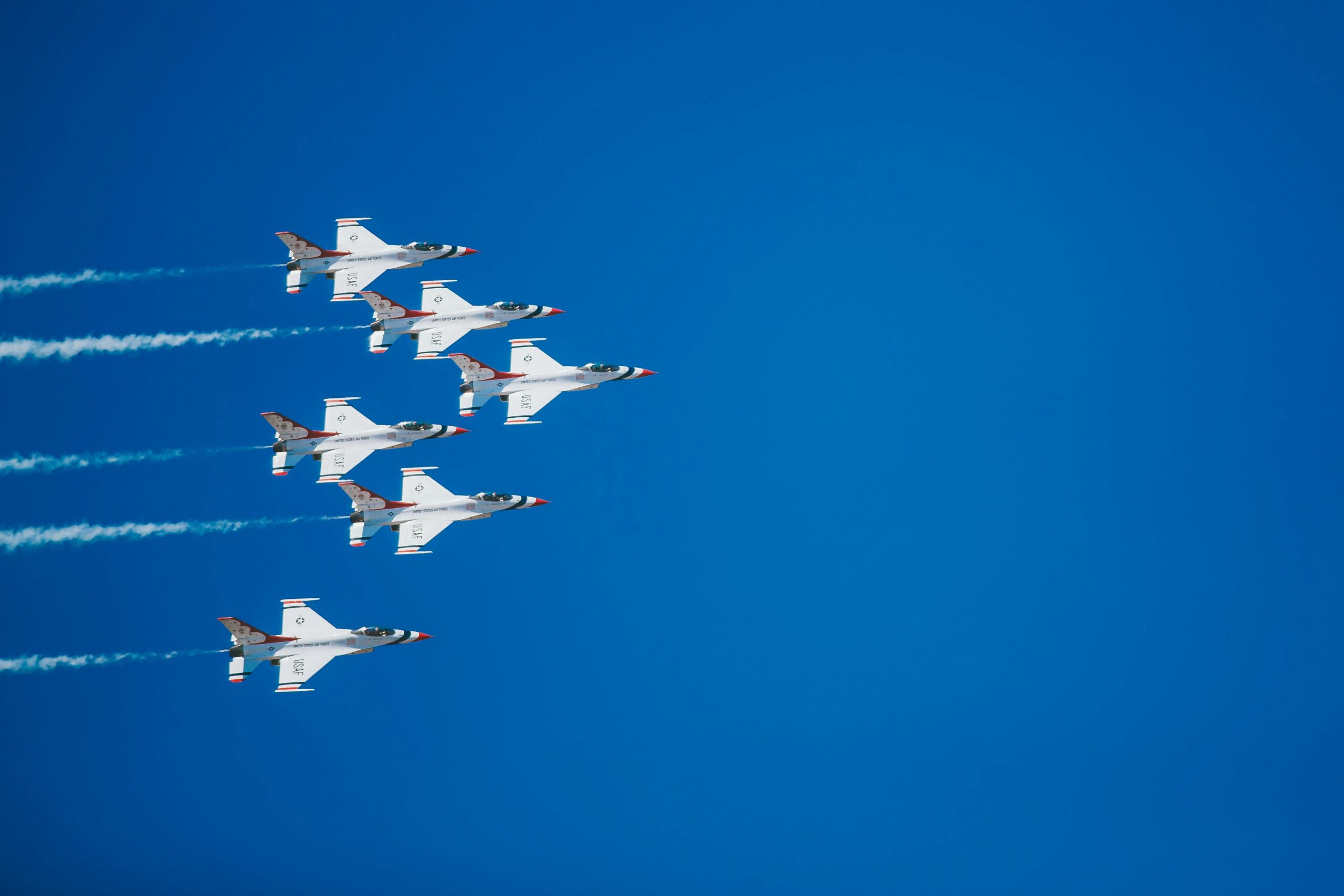Introduction to the Meeting
The upcoming meeting between former President Donald Trump and Polish President Andrzej Duda is set against a backdrop of significant geopolitical challenges, particularly concerning the ongoing war in Ukraine. As the conflict persists, the discussions will likely center around security, defense collaboration, and the broader implications for U.S.-Poland relations in the context of regional stability. Poland, strategically located in Europe, has become increasingly important as NATO’s eastern flank and a key ally of the United States in Eastern Europe.
This meeting represents an essential step in fortifying the relationship between the U.S. and Poland, especially as former President Trump may bring a different perspective toward international alliances and defense strategies compared to the current administration. The context of the Ukraine war further intensifies the significance of this encounter, with Poland serving as a crucial partner in offering humanitarian aid, shelter, and support to Ukrainian refugees fleeing the conflict.
The implications of this dialogue extend beyond bilateral issues, with potential ripple effects on European security dynamics and NATO operations. The discussions will likely encompass various topics, including military presence, economic cooperation, and energy security, particularly as Europe seeks to diversify its energy sources amid rising tensions with Russia. As a NATO member, Poland’s role in advocating for collective defense measures will also be a focal point during the meeting.
As both leaders aim to strengthen the United States-Poland alliance, this meeting could provide an opportunity to reevaluate existing strategies and build a unified response to the challenges posed by the Ukrainian conflict. With both nations facing a rapidly evolving geopolitical landscape, the outcomes from this meeting will be crucial in shaping the future of their diplomatic relationship.
Background on U.S.-Poland Relations
The relationship between the United States and Poland has a long and complex history marked by both collaboration and challenges. The two nations first established formal diplomatic ties in 1919, shortly after the end of World War I, as Poland regained independence following over a century of partitions. During this early period, the United States supported Poland’s sovereignty and democratic initiatives, fostering a sense of partnership that would evolve over time.
The interwar years saw the strengthening of these diplomatic ties, with the U.S. recognizing Poland’s independence and engaging in various economic and cultural exchanges. However, World War II severely strained the relationship, as Poland fell under Nazi occupation, followed by Soviet control, which persisted until the end of the Cold War. During this tumultuous period, the United States offered support to the Polish government-in-exile and maintained a strong anti-communist stance, reinforcing the principle of Polish sovereignty.
The fall of communism in 1989 marked a significant turning point for U.S.-Poland relations. With the establishment of a democratic government, Poland sought closer ties with the West, leading to its inclusion in NATO in 1999. This membership not only solidified Poland’s position in European security but also intensified U.S. military presence in the region. As NATO allies, the United States and Poland have collaborated on various security and defense initiatives, contributing to stability in Eastern Europe.
In the years that followed, Poland has become a crucial partner for the U.S., particularly in the context of challenges posed by Russia’s assertive foreign policy. The ongoing discussions regarding defense cooperation and regional security demonstrate the enduring significance of the U.S.-Poland relationship, particularly as it relates to the ongoing situation in Ukraine. Through shared values and mutual interests, both nations continue to work collaboratively to address contemporary security challenges.
The Ukraine War: Current Situation
The ongoing Ukraine war, which began in 2014 with the annexation of Crimea by Russia, remains a prominent issue in global politics. As of late 2023, the conflict has escalated significantly, with intensified military operations and a shifting landscape of alliances. The situation on the ground is marked by fierce battles in the eastern regions of Ukraine, particularly in Donetsk and Luhansk, where Russian-backed separatists continue to challenge Ukrainian sovereignty.
Recent developments have underscored the importance of international collaborations, as nations reassess their strategies in response to the war. NATO has increased its presence in Eastern Europe, reinforcing its eastern flank in a bid to deter further Russian aggression. This military support is paired with comprehensive economic sanctions aimed at crippling the Russian economy and reducing its ability to fund military operations. The West’s unyielding stance has resulted in divisions within European politics, prompting debates on national security, energy dependency, and defense expenditure.
Key players in the conflict extend beyond Ukraine and Russia. The role of the United States is particularly significant, especially in relation to military aid and diplomatic efforts to stabilize the region. Additionally, countries such as Germany and France have been instrumental in navigating diplomatic channels, albeit with differing perspectives on engagement with Moscow. The situation has also galvanized support from various Eastern European nations, which fear the repercussions of a weakened Ukraine on regional stability.
As we analyze the geopolitical impact, it is evident that the Ukraine war has reshaped alliances and sparked dialogues among global leaders. The conflict’s ongoing nature highlights the urgency for cohesive strategies to address security concerns and humanitarian crises, establishing the groundwork for future negotiations and potential resolutions.
Trump’s Foreign Policy Perspective
During his presidency, Donald Trump adopted a foreign policy approach characterized by a focus on “America First,” which prioritized national interests and questioned longstanding alliances. This perspective significantly influenced his dealings with Eastern European nations, particularly in relation to Ukraine. Trump’s administration was marked by a strong skepticism toward NATO and a desire to reassess the financial commitments of the United States to the alliance. He often emphasized that European nations should contribute more to their own defense, a stance that resonated with many voters who were concerned about U.S. expenditures abroad.
In the context of the Ukraine conflict, Trump’s approach was multifaceted. He supported Ukraine through military aid, but his administration’s relationship with Russia raised eyebrows. Trump’s preference for personal diplomacy often led to controversial interactions with Russian President Vladimir Putin. For instance, during a joint press conference in 2018, he famously downplayed Russia’s interference in the 2016 U.S. elections, which was widely criticized and seen as a departure from traditional U.S. foreign policy norms that advocated for a firm stance against Russian aggression, particularly in Eastern Europe. This created a complicated backdrop for Ukraine’s position, as ongoing tensions persisted between the government in Kyiv and Moscow.
As Trump prepares for his upcoming meeting with the Polish president, there exists an opportunity to analyze whether his previous foreign policy principles are likely to evolve or remain consistent. Observers anticipate that discussions will touch on U.S. support for Eastern European nations in the face of Russian threats. Given Trump’s historical inclination to prioritize dialogue and personal relationships with world leaders, it is plausible that he may seek to engage in a discourse that promotes strategic partnerships, particularly with countries like Poland, which are pivotal in the region’s geopolitical context.
Poland’s Stance on the Ukraine Conflict
Poland has positioned itself as a strong advocate for Ukraine in the ongoing conflict with Russia, driven by historical ties, security concerns, and a commitment to European stability. The war has profound implications for Poland, as it shares a border with Ukraine and a complex history with Russia. The Polish government has been vocal in its condemnation of Russian aggression and has actively supported Ukraine through various means, including military aid, humanitarian assistance, and diplomatic initiatives. Poland’s solidarity with Ukraine is grounded in an understanding that a secure and free Ukraine is essential for maintaining security in Central and Eastern Europe.
Poland’s support for Ukraine is evident in its participation in international organizations and forums where the issue of the conflict is discussed. As a member of the European Union (EU) and NATO, Poland plays a pivotal role in formulating a unified response to Russian actions. It has called for strict sanctions against Russia and has been involved in efforts to bolster NATO’s presence in the region to deter further aggression. This commitment reflects Poland’s understanding that stability in Ukraine is directly linked to its national security and that a failure to support Ukraine could embolden Russian expansionism, threatening not only Poland but other neighboring countries as well.
Furthermore, Poland has welcomed a significant number of Ukrainian refugees, demonstrating its humanitarian commitment in the face of the ongoing crisis. This response aligns with broader EU initiatives aimed at assisting displaced populations. In summary, Poland’s stance on the Ukraine conflict is characterized by robust support for Ukraine, a strategic approach within NATO and the EU, and an unwavering commitment to regional security. The developments surrounding this conflict underscore Poland’s proactive engagement in improving European defense and resilience against potential threats posed by Russia.
Potential Outcomes of the Meeting
The upcoming meeting between former President Donald Trump and Polish President Andrzej Duda stands as a critical juncture for U.S.-Polish relations, especially in the context of the ongoing Ukraine war. This encounter may signal several potential outcomes that could reshape U.S. policy regarding Eastern Europe. First, there is the possibility of an explicit shift towards a more assertive American stance on security cooperation in the region. Given Poland’s strategic location, the U.S. could bolster its military presence there, enhancing NATO’s eastern flank and reinforcing commitments to uphold European security. This would not only act as a deterrent against potential aggression from Russia but also reassure Warsaw about its defense posture amid escalatory tensions.
Moreover, discussions may revolve around increased military cooperation, including joint exercises and advanced weapon systems. Poland has shown interest in modernizing its military capabilities, and an endorsement from Trump could lead to more military aid and opportunity for collaborative development of defense technologies. Such initiatives would strengthen Poland’s defense infrastructure and could result in a more integrated response framework within NATO. Enhanced military cooperation may also encompass intelligence sharing and logistical support, refining both nations’ strategic readiness.
Additionally, this meeting could affect Poland’s broader security strategy, potentially leading to a recalibration of its foreign policy. Should the dialogue yield positive results, it may encourage Poland to continue advocating for a unified NATO response to threats coming from the East. In essence, the outcomes of the Trump-Duda meeting could not only reshape U.S. policy but also fortify Poland’s security strategy, reinforcing its role as a crucial player in the geopolitical landscape of Europe.
Reactions from the International Community
The upcoming meeting between former President Donald Trump and Polish President Andrzej Duda has garnered significant attention from the international community, particularly amid the ongoing Ukraine conflict. Analysts are scrutinizing the potential impact of this high-profile meeting on geopolitical dynamics, especially with regard to NATO’s collective response to Russian aggression. Many view it as a crucial moment for Polish-American relations, which have been strong supporters of Ukraine since the onset of the war.
Political analysts note that NATO’s eastern flank, including Poland, feels an urgency to strengthen military alliances and bolster defenses in light of Russia’s actions. As the war continues to evolve, these discussions serve as a crucial touchpoint for assessing troop deployment, intelligence sharing, and humanitarian aid. Countries such as Lithuania and Latvia are keenly watching the meeting, as their own security could be influenced by the outcomes of the dialogue.
International reactions are not limited to governmental responses; Non-Governmental Organizations (NGOs) are also engaging in discussions about the implications of this meeting. Humanitarian organizations, in particular, are hopeful that the dialogue will address the plight of civilians affected by the conflict. They advocate for continued support for displaced populations and stressed the need for increased funding to assist humanitarian efforts in Ukraine.
Furthermore, reactions from other global players such as the European Union and even countries in Asia are crucial. These entities are keenly aware that the U.S. stance on Ukraine directly impacts global security and economic stability. Thus, the international community is bracing for announcements that could reshape their approaches in supporting Ukraine or addressing Russian provocations.
Public Opinion and Media Coverage
As the geopolitical landscape shifts, public opinion regarding foreign policy approaches, particularly those of former President Trump, remains a focal point of discussion. Trump’s upcoming meeting with the Polish President is anticipated to center heavily on the ongoing Ukraine war, an issue that resonates deeply within public discourse. Surveys indicate a polarized view among American citizens regarding Trump’s foreign policy strategies, particularly in relation to Ukraine. While a segment of the population appreciates his assertive stance toward Russia, another portion expresses concern over his unpredictability and its potential ramifications for international relations.
Recent polls indicate that many Americans advocate for a stronger U.S. response to Russian aggression, an aspect that Trump may need to address to align with public sentiment. This divergence in opinions showcases the complexities of engaging the public on sensitive topics such as military aid and diplomatic negotiations. Furthermore, Trump’s historical alliance with more isolationist policies adds another layer of scrutiny to his forthcoming discussions with Poland, a key ally in the region.
The media plays a significant role in shaping public perceptions surrounding these discussions. Coverage of Trump’s foreign policy often leans towards sensationalism, which can either amplify support or exacerbate dissent among the populace. Leading news outlets and various media platforms convey narratives that can either reinforce existing beliefs or challenge public opinions, thereby influencing the national conversation. The framing of Trump’s policies, particularly concerning the Ukraine war, will likely dictate the tone and focus of the media coverage leading up to and following the meeting with the Polish President. As the media highlights specific outcomes of the meeting or potential shifts in policy, public opinion may be swayed, underscoring the intricate relationship between media narratives and civic attitudes toward foreign diplomatic strategies.
Conclusion: The Future of U.S.-Poland Relations
The upcoming meeting between former President Donald Trump and Polish President Andrzej Duda serves as a pivotal moment for the future of U.S.-Poland relations amidst the ongoing Ukraine conflict. Given Poland’s strategic position as a member of NATO and its proximity to Ukraine, the discussions are likely to focus on enhancing military cooperation, economic ties, and the broader security framework within Europe. The implications of this meeting extend beyond bilateral relations, affecting the dynamics of European security, especially in light of ongoing tensions with Russia.
As both nations navigate the complexities stemming from the war in Ukraine, the U.S. commitment to support its allies is put to the test. Poland has emerged as a crucial logistical and military partner, facilitating the transfer of aid to Ukraine. Thus, the upcoming talks are expected to reinforce commitments to bolster military presence in the region, ensure energy independence, and promote economic partnerships. These elements are not only essential for Poland but also for the collective security of the NATO alliance.
Furthermore, the meeting underscores the importance of collaborative approaches in addressing the multifaceted challenges posed by Russian aggression. It reflects a growing recognition that U.S.-Poland relations are foundational to establishing a cohesive strategy among Western allies to deter further destabilization in Eastern Europe. The outcomes of this meeting may signify broader shifts in policy, informing both military endeavors and diplomatic initiatives throughout the continent.
In summary, the discussions between Trump and Duda are set against a backdrop of heightened tensions and shifting alliances, marking a crucial point in U.S.-Poland relations. The establishment of stronger ties will not only bolster Poland’s security but also contribute to a stable and unified Western response to ongoing geopolitical challenges in Europe.


